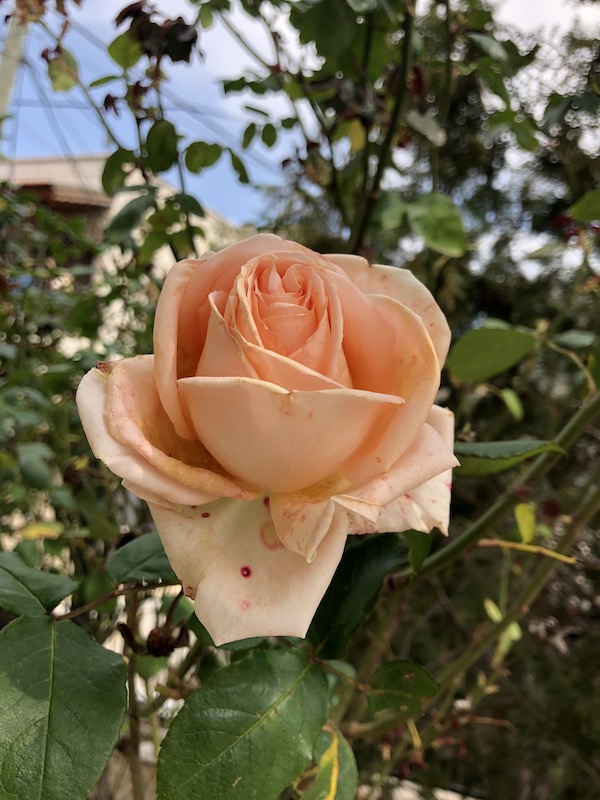By Heather L. Melton, staff officer for the United Thank Offering
Over the past few weeks, I’ve been thinking a great deal about moments when our desire to be grateful has gone wrong. May is time where many people are recognized and thanked for their participation, support or achievements, but for those doing the thanking, this can cause anxiety, because who hasn’t forgotten someone when thanking a group, or who among us hasn’t been forgotten?

My experience of being forgotten really shaped my opinion of gratitude. It happened in my early 20s. I was working at a church in Boulder, Colo., and I was perhaps overly determined to prove my worth beyond my parish. I signed us up to host a training event for the diocese. I attended every planning meeting, took copious notes, and went over the top with all the things I signed up for, from making custom signs for each confirmand and their family to ensuring that the space was hospitable and ready for everyone. When the day arrived, I got to church hours early to make sure it was perfect.
The day ended with a beautiful worship service. I had made the bulletins, arranged all the volunteers and was the lector. I will never forget sitting next to my rector during the service, feeling very proud of myself. During the announcements, the canon pulled out a box full of flower bouquets to thank those who had organized the event. I remember that I moved to the edge of my seat, ready to be thanked and recognized. I remember slinking back into my seat as I watched the last bouquet leave the box, and my name had not been called. I remember my priest reaching around the wooden divider in our stalls to squeeze my hand, wordlessly acknowledging that he knew I was feeling some big feelings. I think he probably reasoned that I was hurt or angry that I was overlooked, but in fact, I was embarrassed at how much I had wanted to be thanked.
One of the things I’ve heard for years is that you should never thank anyone by name because you will forget someone. The experience I had over 20 years ago still stings when I retell it, mostly because it is embarrassing how much I wanted those flowers and how I was driven to make the event special because I wanted to be recognized. I learned a lot in that moment, and it continues to shape my ministry and life.
Perhaps the most important thing I learned is to be discerning about why I am doing something, asking what is my motivation behind the action? If I’m doing it to be recognized, I probably should stop doing it. But that experience of not being thanked publicly when others were didn’t make me want to not thank people, it made me want to thank people more frequently and in a variety of ways.
The story doesn’t end there in my “shame storm” (as Brené Brown calls it). The next day was Sunday, and I had my job to do. I remember coming to work and stopping by my office before heading into church. I remember feeling down still about my whole motivation and behavior (and if we’re being honest, I’m sure I still wanted those silly flowers) but showing up is how we move through it. When I opened the door to my office, there on my desk was a beautiful jar full of flowers from someone’s yard and a note that said, thank you for all you did yesterday. There was no signature, and the handwriting wasn’t familiar. I stood there in awe. Someone had noticed how hard I worked, and modeled gratitude in a new way for me. Gratitude doesn’t always have to be flashy, and it can come from unexpected places. In that moment, I felt seen, and I felt loved in a more profound way than had I received flowers the day before. I will never forget that moment, and I will always give thanks for the person who took a moment to give me this gift.
Here’s the thing: If we allow our fear of forgetting someone to stop us from thanking people, then we’ve missed the point of gratitude. Gratitude is messy. When we say thank-you to someone for something they did or simply for who they are, it is acknowledging that they are a gift to us and to our community in a way that we cannot repay. Gratitude is the act of naming that we were made for each other and that we can’t do any of this alone. If we do something in the hopes of being thanked or recognized, then the gratitude we receive is likely hollow because the gift we gave had strings attached; the gift was conditional, which means it wasn’t a gift at all. I think it’s why the rich young man struggles when Jesus tells him to go and give everything away. He was shocked that his list of good deeds wasn’t enough to gain entrance into the Kingdom of Heaven.
Years ago, when I was a parish priest, I took the parish directory and wrote in it something each person contributed to the life of the congregation. I grouped these things into 12 categories and each month for a year I thanked people by name. It shifted the energy in our church; people signed up happily to do things they did begrudgingly before. They were willing to try new things, knowing that they would get thanked regardless of the success of the project. I thanked people in the newsletter, the bulletin and publicly. I made sure that no matter how busy we were, that everyone was seen, even if for just a moment.
We cannot let experiences of hurt around gratitude stop us from doing the work of practicing gratitude. We cannot let fear stop us from giving thanks. Our faith is rooted around the Eucharist, which uses a prayer called The Great Thanksgiving — practicing gratitude is at the core of who we are as people created in the image of a loving and grateful God. So this month, as transitions take place in your life or community, be sure to take a moment and recognize them, give thanks for them in big and small ways. When you do, even if you forget someone, you are doing the work God has put before us of receiving the gift of the people who make up our messy communities. Trust that if you do forget someone, the Holy Spirit will show up, just like it did for me.
